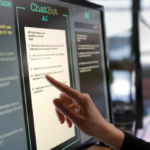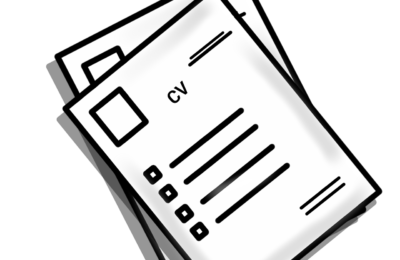Hiring the right candidates for your team is the most important task shaping your company’s success. It’s your chance to steer through the intricacies of a candidate’s professional journey and personal attributes.
The importance of this process cannot be overstated, as the individuals you choose will contribute significantly to the growth and dynamics of your team. This guide aims to equip you with the essential tools—questions—that will unravel the layers of each candidate, providing you with a holistic understanding.
From exploring their technical proficiency to gauging their adaptability and ethical decision-making, each question serves as a key to unlocking the potential within your candidates.
So, let’s delve into the art of asking the right questions and mastering the skill of selecting qualified candidates and those who will thrive in your unique work culture.

Things to keep In Mind While Asking Questions as an interviewer
The art of questioning goes beyond mere inquiry—it’s a strategic process. As an interviewer, specific considerations can enhance the effectiveness of your questions and provide deeper insights into your potential hires.
Some key factors to keep in mind are:
. Understand the Job Role
Understanding the intricacies of the job role is the foundation of a successful interview. Start by crafting questions that delve into the specifics of the position, ensuring the candidate comprehends the unique challenges and responsibilities they may encounter.
Begin with fundamental inquiries about their understanding of the job description. Transition into more scenario-based questions that assess how the candidate would approach common challenges within the role. For example, inquire about how they would prioritize tasks or handle unexpected obstacles. This not only gauges their theoretical knowledge but also reveals their problem-solving skills.
Additionally, explore their familiarity with industry-specific tools or technologies relevant to the job. Assessing their technical awareness ensures they possess the necessary skills to excel.
In short, the goal is to uncover not only if the candidate has read the job description but if they genuinely comprehend the nuances and requirements of the role. This step lays the groundwork for a more nuanced evaluation of their suitability for the position.
. Assess Qualifications and Skills
Assessing a candidate’s skills and qualifications is a pivotal phase in the interview process. Craft questions that delve into their technical proficiency and qualifications, ensuring alignment with the job demands.
Initiate the assessment by inquiring about their relevant work experience. Explore specific projects they’ve undertaken, challenges faced, and their contributions to previous roles. This provides insight into their practical application of skills.
Move on to probing their educational background and any certifications they may hold. Confirm that their academic and professional qualifications align with the job’s prerequisites, ensuring a solid foundation for success.
Additionally, ask about any specialized skills or training that uniquely equip them for the role. This could include proficiency in specific software, languages, or methodologies essential to the job.
The aim is to ascertain not only the breadth but also the depth of their skills. By asking targeted questions, you create a comprehensive picture of the candidate’s capabilities, helping you make informed decisions about their fit for the position.
. Cultural Fit and Team Dynamics
Craft questions that go beyond technical skills to explore whether the candidate aligns with your company’s culture and can seamlessly integrate into your team.
Start by asking about their preferred work environment and communication styles. This helps gauge whether their preferences align with the collaborative nature of your team.
Delve into their experiences working in diverse teams, asking about challenges faced and how they contributed to a positive team dynamic. Look for evidence of adaptability and cooperation.
Pose questions about their understanding of your company’s values and mission. Assessing their awareness ensures they are not just seeking a job but are genuinely interested in contributing to the ethos of your organization.
Finally, inquire about how they handle conflicts within a team. Their response provides insights into their interpersonal skills and their ability to navigate challenges, contributing to a harmonious work environment.
By focusing on cultural fit and team dynamics, you’re not only selecting a qualified candidate but also someone who will enhance the collaborative spirit of your team, fostering a positive and productive workplace culture.
. Problem-solving and Critical Thinking Skills
Evaluating a candidate’s problem-solving and critical-thinking skills is paramount in the interview process. Craft questions beyond the surface, delving into scenarios that assess their ability to think on their feet and make informed decisions.
Begin by presenting real or hypothetical challenges related to the job. Inquire about their approach to problem-solving, the steps they would take, and the factors they would consider. This provides a glimpse into their analytical thought process.
Explore their experience in handling unexpected situations in previous roles. Ask for specific examples where they successfully navigated challenges, showcasing their adaptability and quick-thinking abilities.
Additionally, it presents them with a scenario where multiple tasks demand attention simultaneously. Assess how they prioritize and manage their time under pressure, providing insights into their organizational and critical thinking skills.
By focusing on problem-solving and critical thinking, you ensure that the selected candidate is equipped with technical knowledge and possesses the cognitive agility to tackle challenges effectively.

. Communication and Interpersonal Skills
Assessing a candidate’s communication and interpersonal skills is crucial for fostering effective collaboration within a team. Craft questions that delve into various aspects of their communication style and ability to interact with others.
Start by asking about their preferred mode of communication and how they adapt it to different audiences. This provides insights into their versatility in conveying information.
Explore their experiences in team-based projects, asking about instances where effective communication was pivotal. Look for examples of how they contributed to positive team dynamics through clear and concise communication.
Pose questions about their approach to handling conflicts within a team. Inquire about instances where disagreements arose and assess their ability to navigate and resolve interpersonal challenges.
Additionally, ask about their experience with giving and receiving feedback. Understanding how they respond to constructive criticism reveals their openness to improvement and collaboration.
. Motivation and Passion
Uncovering a candidate’s motivation and passion during an interview is key to identifying genuinely invested individuals in their role and your company. Craft questions that probe beyond the surface, aiming to understand the driving forces behind their professional journey.
Start by asking what excites them most about the position they’re applying for. This provides insight into their alignment with the role’s responsibilities and challenges.
Delve into their long-term career goals. Inquire about the trajectory they envision and how the current position fits into their broader professional aspirations. This reveals the depth of their commitment and passion for their chosen field.
Explore their knowledge of your company’s mission and values. Assess whether their values align with the organization’s ethos, ensuring they are not just seeking a job but are genuinely motivated to contribute to the company’s goals.
Finally, ask about instances where they faced professional setbacks and how they overcame them. This provides insights into their resilience and determination, showcasing their ability to stay motivated even in challenging situations.
. Handling Challenges and Stress
Ensuring how candidates handle challenges and stress ensures they can thrive in a dynamic work environment. Craft questions that delve into their coping mechanisms and resilience, providing insights into their ability to navigate difficulties.
Begin by asking about instances where they faced tight deadlines or high-pressure situations. Inquire about their strategies to manage stress and meet objectives, gauging their composure under pressure.
Explore their experiences with unexpected challenges at work. Ask about specific scenarios where they had to adapt quickly and find solutions, showcasing their ability to think independently.
Inquire about their approach to balancing multiple tasks simultaneously. Assess how they prioritize and organize their workload during busy periods, revealing their time management and stress-management skills.
Furthermore, ask about their self-care practices outside of work. Understanding how candidates maintain a healthy work-life balance and manage stress in their personal lives provides a holistic view of their well-being.

. Adaptability to Changes
Ensuring the candidate’s adaptability to change is essential in today’s ever-evolving workplace. Craft questions that assess their flexibility and willingness to navigate shifts in tasks, team structures, or company strategies.
Begin by asking about instances where they experienced significant changes in their previous roles. Inquire about how they adapted to new circumstances, showcasing their ability to embrace change positively.
Furthermore, explore their approach to learning and incorporating new technologies. Assess their openness to acquiring new skills and staying updated with industry advancements, ensuring they can adapt to the evolving demands of their role.
Inquire about their response to feedback and constructive criticism. Understanding how candidates use feedback as a tool for improvement provides insights into their adaptability and willingness to grow professionally.
Try to ask about their experiences in situations where projects or priorities shifted suddenly. Assess how they managed to refocus their efforts and adapt to the new requirements, revealing their ability to thrive in dynamic work environments.
. Ethical Decision-Making
Craft questions that explore their approach to moral dilemmas, ensuring alignment with your company’s values. Start by presenting scenarios that pose ethical challenges related to the job. Inquire about how they would navigate such situations, assessing their thought process and the principles that guide their decisions.
Explore their experiences in situations where ethical considerations played a significant role. Ask about their choices and rationale, providing insights into their commitment to ethical conduct.
Inquire about their understanding of your company’s code of ethics or values. Assess whether they have familiarized themselves with your organization’s ethical standards, ensuring they align with the overarching principles.
In addition to all of this, ask about instances where they witnessed unethical behavior in their previous roles. Evaluate how they addressed or reported such behavior, showcasing their commitment to upholding ethical standards even in challenging circumstances.
Conclusion:
Remember, the individuals you choose will shape the future of your team. So, apply these insights in your next interviews, creating a thorough assessment that goes beyond qualifications, ultimately leading to the selection of candidates who not only excel in their roles but also enhance the overall synergy of your team. iApply these principles for effective and insightful hiring.









